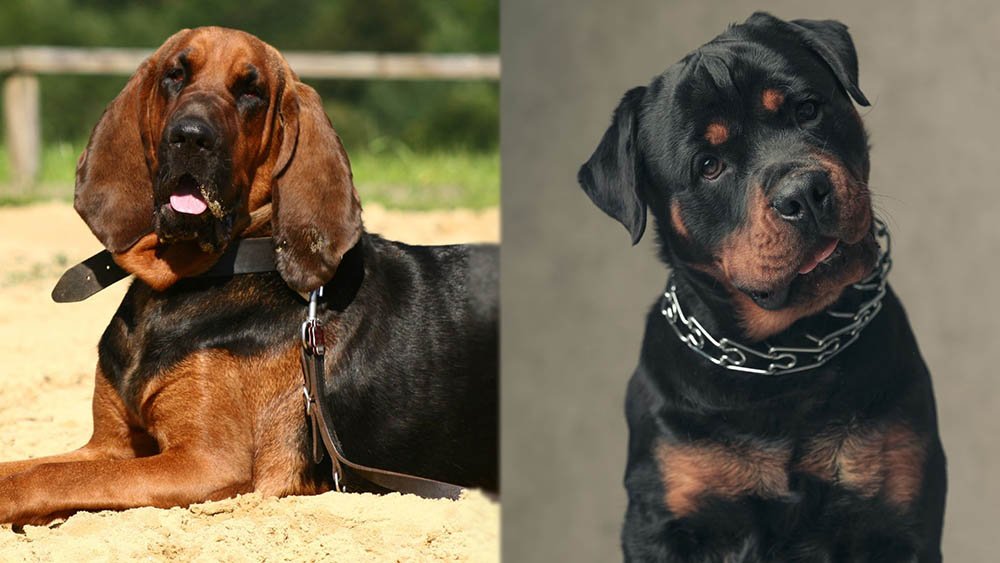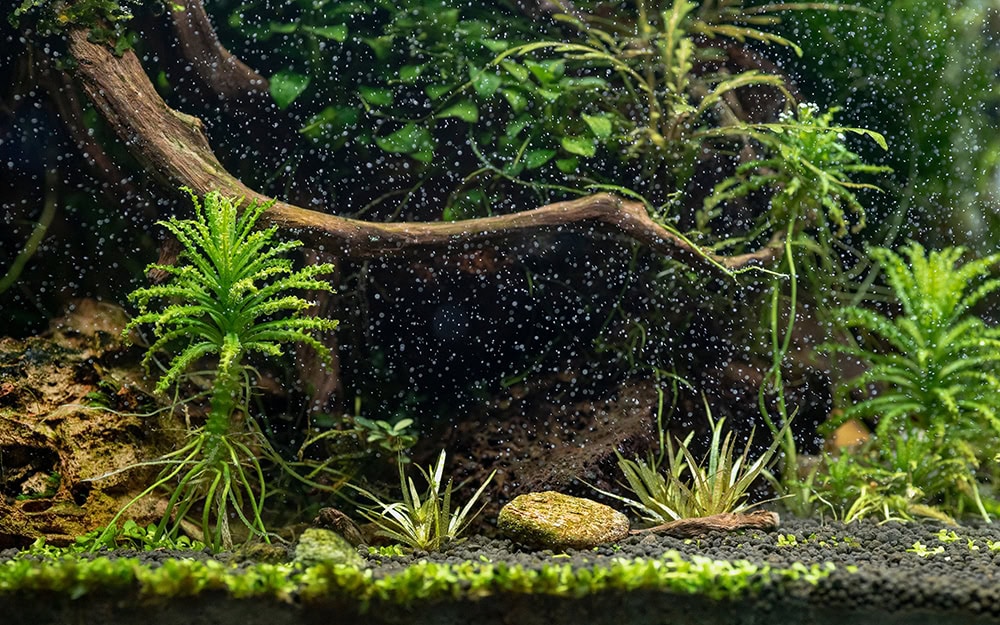Shiba Inu vs Korean Jindo: Differences Explained (With Pictures)

Updated on
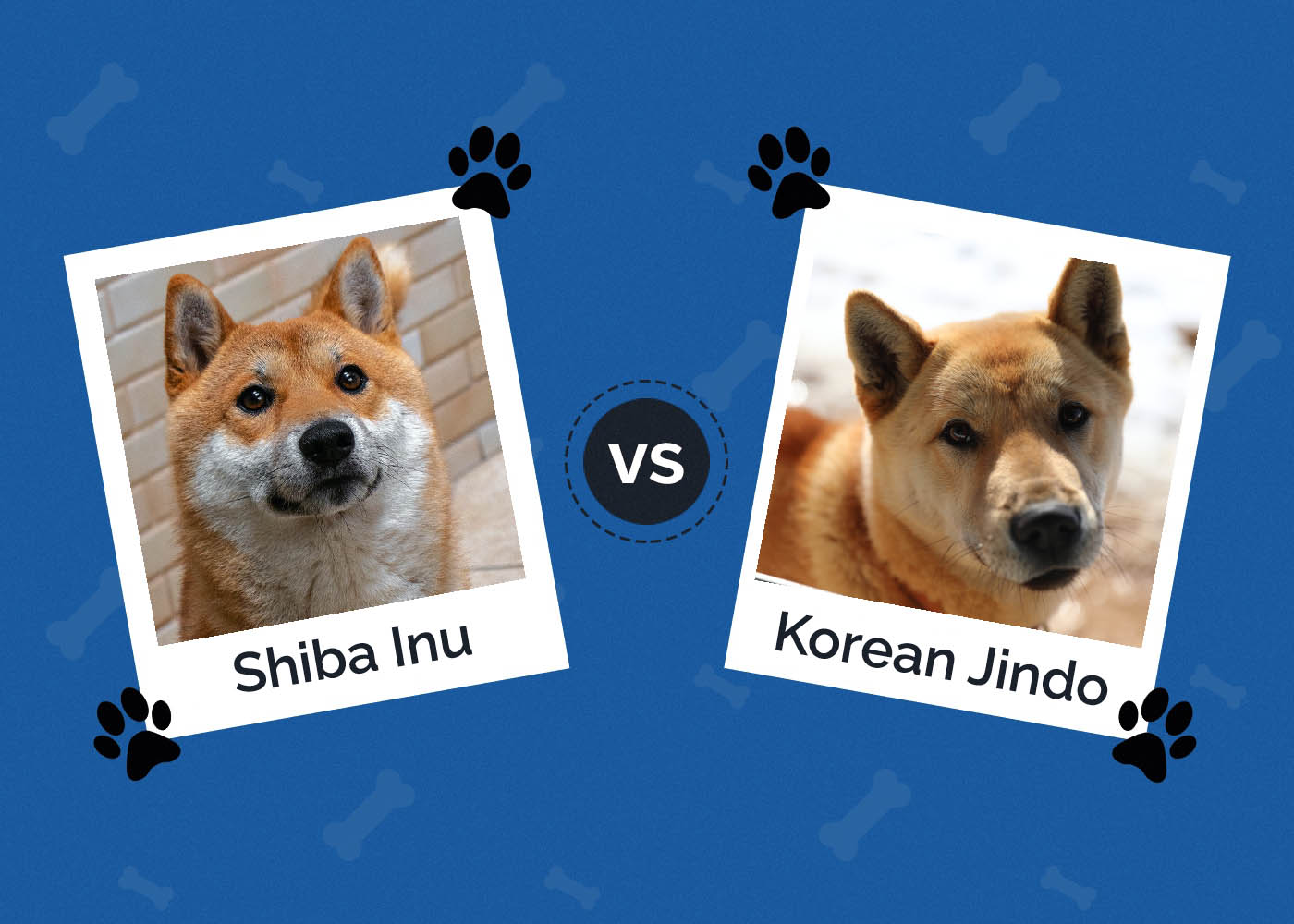
Click to Skip Ahead
When looking for a new furry addition to your family, it’s essential to consider the unique characteristics of each breed to ensure the perfect fit. Two similar breeds that often catch the eye of prospective dog owners are the Shiba Inu and the Korean Jindo. Both hailing from Asia, these breeds share several similarities in terms of intelligence, loyalty, and their striking appearances. However, there are also notable differences between the two breeds, including personality traits, exercise requirements, and trainability. In this comprehensive guide, we’ll delve into the distinct features of both the Shiba Inu and Korean Jindo, providing you with all the information needed to make an informed decision on which breed is best suited for your lifestyle and home.
Visual Differences
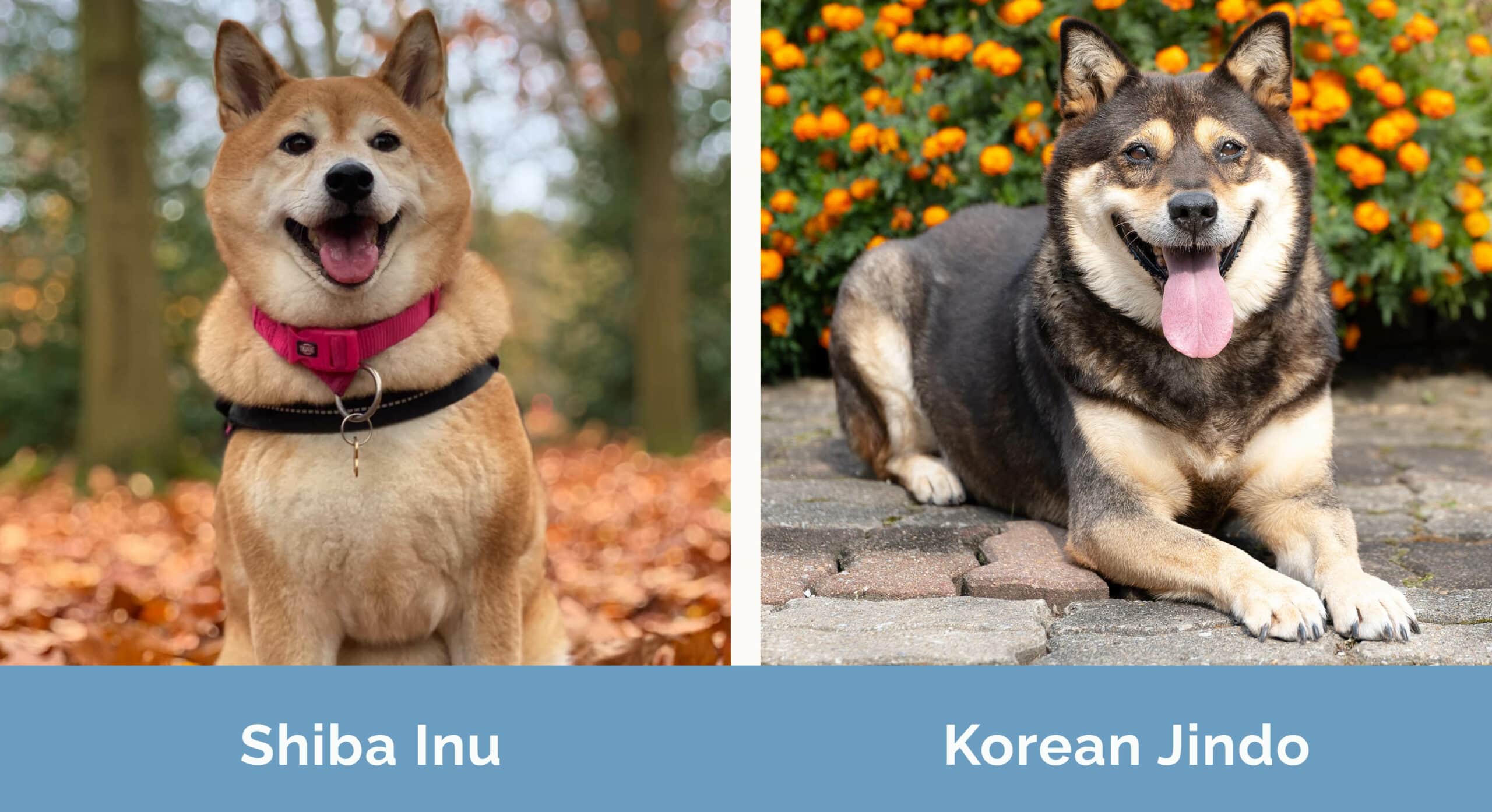
At a Glance
- Average height (adult): 13½–16½ inches
- Average weight (adult): 17–23 pounds
- Lifespan: 12–15 years
- Exercise: 1+ hours a day
- Grooming needs: Moderate
- Family-friendly: Yes
- Other pet-friendly: Often
- Trainability: Intelligent, loyal, eager to please
- Average height (adult): 19½–21½ inches
- Average weight (adult): 35–50 pounds
- Lifespan: 10–13 years
- Exercise: 2+ hours a day
- Grooming needs: Moderate
- Family-friendly: Yes
- Other pet-friendly: Often
- Trainability: Intelligent but stubborn
Shiba Inu Overview
Personality / Character
The Shiba Inu is a small yet spirited breed known for its intelligence, independence, and strong-willed nature. While they can be stubborn at times, they are also affectionate and loyal, forming deep bonds with their families. Generally good with children and other pets, early socialization is essential for ensuring a well-rounded temperament in this breed.
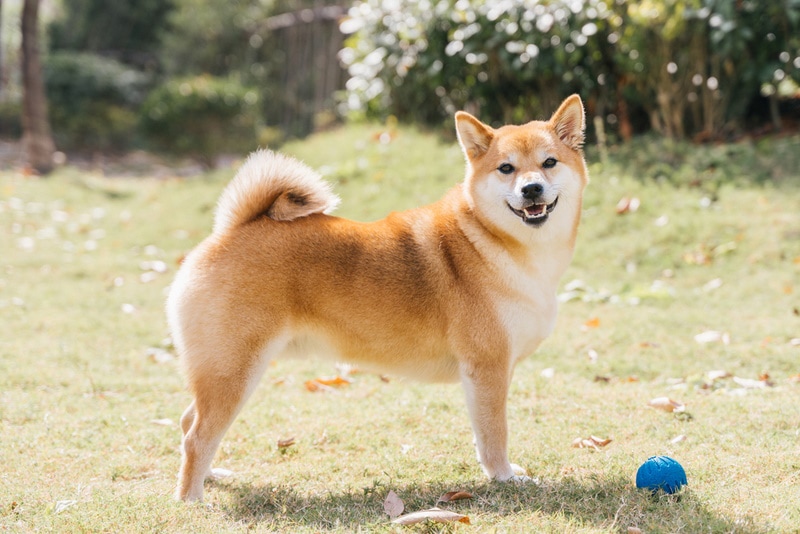
Training
Training a Shiba Inu can be a challenging task due to their stubbornness. However, their intelligence and eagerness to please make them highly trainable with the right approach. Employing positive reinforcement techniques, such as rewards and praise, will yield the best results when working with a Shiba Inu.
Health & Care
Shiba Inus are generally healthy dogs, but like all breeds, they may be prone to specific genetic conditions, including hip dysplasia and patellar luxation. To maintain their health, regular veterinary check-ups, a balanced diet, and appropriate exercise are crucial.
Socialization
As Shiba Inus can be aloof and wary of strangers, early socialization is vital. Exposing them to different environments, people, and animals will help them develop into well-adjusted adult dogs.
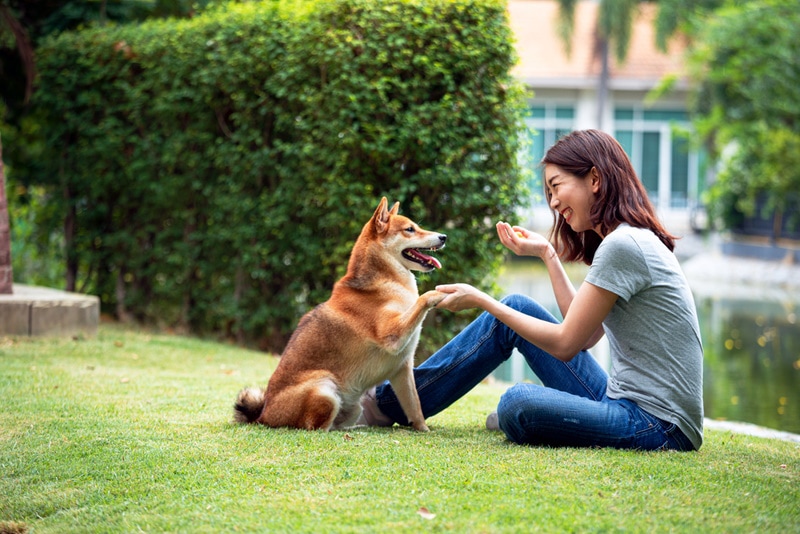
Suitable For:
The Shiba Inu is best suited for families with older children, singles, or couples who have experience with dogs and can provide consistent training and exercise.
Korean Jindo Overview
Personality / Character
The Korean Jindo is a fiercely loyal, intelligent, and independent breed. They are known for their strong hunting instincts and can be reserved around strangers. However, they form strong bonds with their families and are gentle with children, making them great family pets.
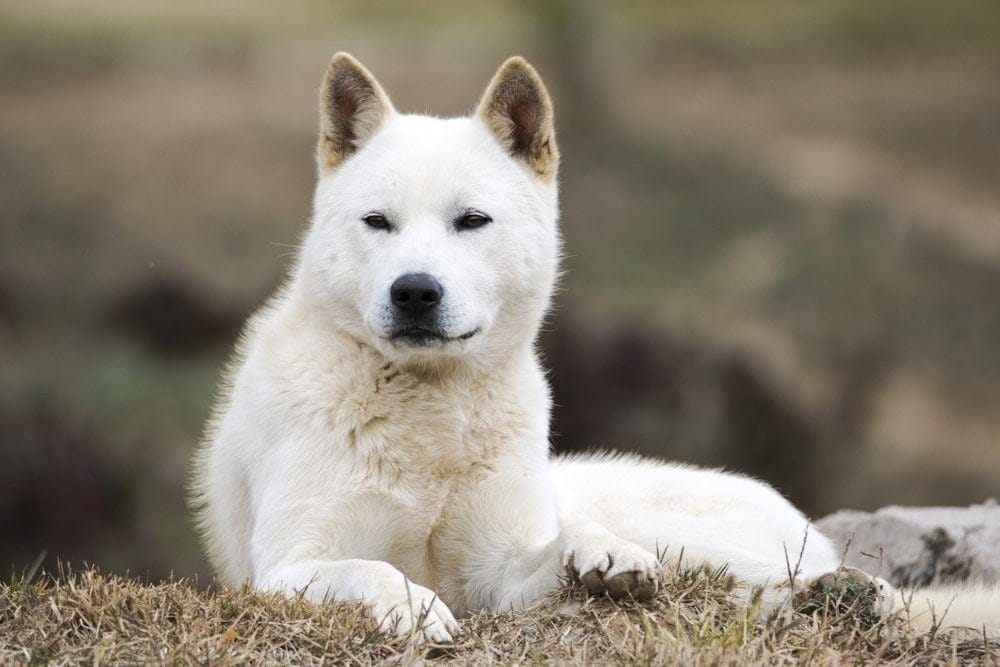
Exercise
Korean Jindos require a significant amount of exercise – at least 2 hours a day – to keep them happy and healthy. They enjoy outdoor activities like hiking and running and benefit from having a large, securely fenced yard to play in. Providing mental stimulation through puzzle toys and training exercises is also essential for this active breed.
Training
Although intelligent, Korean Jindos can be stubborn and challenging to train. Consistency and positive reinforcement are crucial when working with this breed. Establishing yourself as the leader early on will help create a strong bond and make training more effective.
Health & Care
Korean Jindos are generally a healthy breed, but they can be prone to hip dysplasia and hypothyroidism. Regular vet visits, a balanced diet, and adequate exercise will help maintain their health. Additionally, monitoring their weight and adjusting their food intake accordingly can prevent obesity-related health issues.

Socialization
Socializing a Korean Jindo from a young age is essential to ensure they are comfortable around new people and animals. This breed can be naturally reserved, so exposing them to various environments and situations will help them develop into well-adjusted adults.
Suitable For:
Korean Jindos are best suited for active families, singles, or couples who have experience with dogs and can provide consistent training, ample exercise, and a secure environment.
Which Breed Is Right for You?
Shiba Inu
- Compact size
- Affectionate and loyal
- Low to moderate exercise requirements
- Adaptable
- Good with older children and other pets
- Stubborn
- Aloof toward strangers
- Moderate grooming needs
- Possessive
- Escapism
Korean Jindo
- Loyalty
- Protective nature
- High energy and athleticism
- Intelligence
- Good with children
- Stubborn
- High exercise requirements
- Reserved around strangers
- High prey drive
- Need for a secure environment
Choosing between the Shiba Inu and Korean Jindo ultimately depends on your lifestyle, preferences, and living situation. Each breed has its unique set of characteristics that may appeal to different individuals and families.
The Shiba Inu might be the ideal choice for those who:
- Prefer a smaller-sized dog
- Appreciate a spirited and independent personality
- Have experience with dog training and can handle a stubborn breed
- Live in a smaller home or apartment, as long as exercise requirements are met
On the other hand, the Korean Jindo may be more suitable for those who
- Are seeking a larger, more athletic dog
- Value loyalty and a protective nature in their canine companion
- Lead an active lifestyle and can provide ample daily exercise
- Have a securely fenced yard or outdoor space for the dog to roam
Before making a decision, it’s essential to research both breeds thoroughly and, if possible, spend time interacting with them at breed-specific rescues, dog shows, or meetups. This way, you can get a better sense of each breed’s temperament and energy level, allowing you to make an informed decision that will lead to a happy, lifelong bond with your new furry family member.
Summary
In the end, both the Shiba Inu and Korean Jindo are remarkable dog breeds that can make loving and loyal companions. Each breed offers its unique set of qualities, making them appeal to different individuals and families. By carefully considering your lifestyle, preferences, and living situation, you can determine which breed is the perfect fit for you.
Related Read:
- Shikoku vs Shiba Inu: Key Differences (With Pictures)
- Basenji vs Shiba Inu: Notable Differences (With Pictures)
Featured Image Credit: (L) Gabriel Yuji, Unsplash | (R) Rookie Stock, Shutterstock


